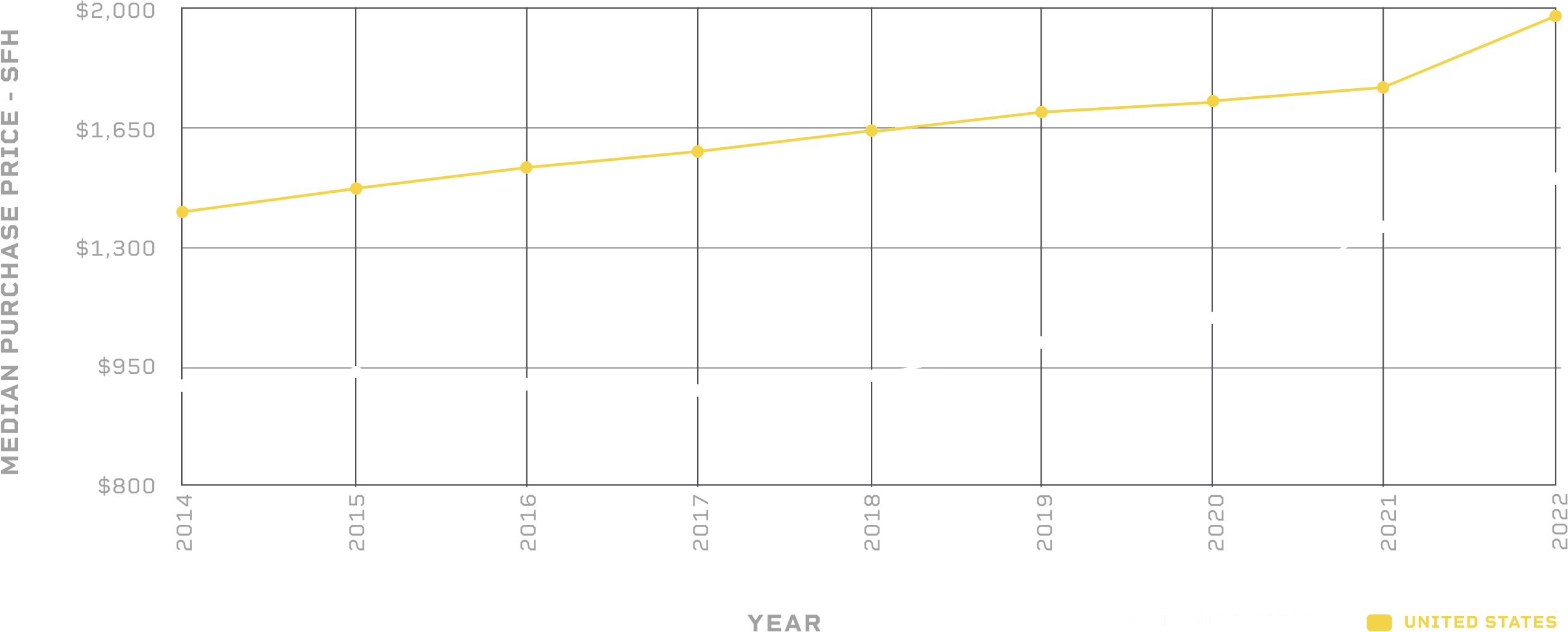Housing In Huntsville
An Overview
Huntsville is one of the best places to live in part due to how far your paycheck goes here. But, housing costs have skyrocketed over the past decade.
Median Monthly Rent (2014-2022)
Source
While it’s true that labor and materials have become more expensive, the primary reason is a simple one: Supply and demand. All else equal, when demand outstrips supply, prices rise. And when supply outstrips demand, prices fall.
Huntsville is hardly alone. Cities across the US are facing severe nationwide housing crises. Nationwide, half of renters must spend more than 30 percent of their income on housing.
This is a direct result of cities severely underbuilding housing.
Again, Huntsville is no exception. While Huntsville added 35,111 new residents between 2010-2020, we only added 8,653 new housing units between 2004 and 2020. If projections are correct, Huntsville will end up having added 28,089 new units of housing between 2004 and 2024. But even that isn’t going to be enough to lower average rents.
The only way to lower average housing costs in Huntsville is to build abundant, affordable, dense new housing.
That data is clear that when cities build, average rents decrease. That’s what happened in Seattle and the Navy Yard neighborhood of Washington, D.C. We can see supply and demand impacting housing prices through the fact that rents fell in expensive cities after people left during the pandemic.
Building more dense housing means everyone pays less for shelter, which frees up resources and alleviates stress for families across Huntsville.
But that’s only the beginning.
Denser, more affordable housing positively impacts nearly every area of life. The research shows that abundant, affordable, dense new housing reduces rates of poverty and homelessness. Building new housing reduces income and health inequalities. It narrows the racial wealth gap, reduces racial and economic geographical segregation, and helps close gaps in racial education outcomes.
Dense, abundant, affordable housing benefits the environment, promotes public health, and boosts economic growth. It even increases fertility.
And it reduces costs for city services.
And that’s just how new homes help Huntsvillians. But the benefits don’t stop there. Building new homes in Huntsville will help the full quarter of the US population living in what researchers call “areas of low economic opportunity” where opioid addiction, diabetes, stroke, heart attacks, and high blood pressure and “deaths of despair” are rampant. “Where one lives shapes when one dies,” writes Derek Thompson. Refusing to build condemns who weren’t born into thriving cities to miserable lives and early deaths.

If you want to see all the benefits new homes can bring, Become a member & get involved!
DonateStay Updated.
Sign up to receive email updates and news about local housing efforts.